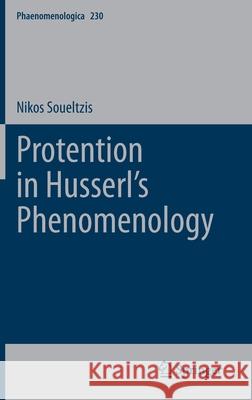Protention in Husserl's Phenomenology » książka
topmenu
Protention in Husserl's Phenomenology
ISBN-13: 9783030695200 / Angielski / Twarda / 2021 / 202 str.
Kategorie:
Kategorie BISAC:
Wydawca:
Springer
Seria wydawnicza:
Język:
Angielski
ISBN-13:
9783030695200
Rok wydania:
2021
Wydanie:
2021
Numer serii:
000029619
Ilość stron:
202
Waga:
0.49 kg
Wymiary:
23.39 x 15.6 x 1.42
Oprawa:
Twarda
Wolumenów:
01
Dodatkowe informacje:
Wydanie ilustrowane











